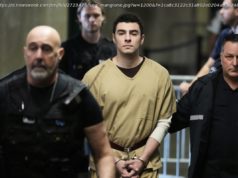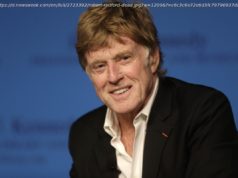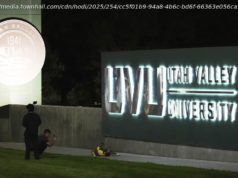Recep Tayyip Erdogan was already modern Turkey’s longest serving ruler. Sunday’s election result is an endorsement of the President’s increasingly hardline measures.
Erdogan tightens his grip
Erdogan starts a new five-year term as president with sweeping new powers granted in a narrowly-won referendum last year that was denounced by his critics as a blatant power grab.
Under the new system, the office of prime minister is abolished, parliament’s powers are curtailed, and the president is accorded wide-ranging executive authority. Erdogan will also be able to stand for another term, meaning he could be in office until 2028.
Erdogan has consolidated power at every step of his career. He has crushed anti-government protests, and in 2013 he evaded a corruption investigation into his inner circle. After a failed military coup to remove his government from power in 2016, he eliminated his opponents by firing tens of thousands of government workers, gutting public institutions, jailing critical voices, and clamping down on the media.
Bad news for the opposition
The opposition gave it their best shot, but in the end were disappointed at the ballot box. However, in spite of Erdogan’s near-silencing of opposition, almost half of Turks who cast ballots voted against him. That means they still have a voice in parliament, and the hope for the opposition is the momentum gained during the election campaign will continue.
A mixed result for the Kurds
The Turkish army has been fighting the separatist Kurdistan Workers‘ Party (PKK), deemed a terrorist organization by the US, EU and others, for nearly four decades, and Erdogan’s AKP has ruled out returning to a peace process that collapsed in 2015.
Despite the resounding victory of their arch foe in Sunday’s elections, in many Kurdish villages there were still celebrations. The Kurdish-oriented Peoples‘ Democratic Party (HDP) passed the 10% threshold to enter parliament, scuppering Erdogan’s plans to exclude Kurdish representation there.
This was achieved despite Selahattin Demirtas, the party’s presidential candidate, being in prison on flimsy terrorism charges, and an election campaign when not a day went by without some form of violent attack against the HDP.
Further blow to freedom of expression
A stifling climate of fear has enveloped Turkey’s media landscape. According to Amnesty International, more than 120 journalists are still imprisoned since the failed 2016 coup. The question now is whether Erdogan will release them. In any case, the media bias was clear throughout the election campaign and on election night, when opposition politicians found themselves squeezed off the air as the results came through.
The economy is still in risky territory
The Turkish lira surged by as much as 3% on Monday and the country’s benchmark stock index advanced. The rally could be brief, however.
Turkey’s currency, the lira, has fallen dramatically since an attempted coup in July 2016. The central bank has jacked up interest rates to nearly 18% in a bid to stem the tide, but that’s piling on the pain for Turkish citizens.
Erdogan, who said he wanted greater control over the economy, has made matters worse by suggesting he wants to control interest rates. Foreign investors, who fear a loss of independence at the central bank, have taken flight.
Turkey’s Syria offensive will continue
Erdogan said Turkey would continue to „liberate Syrian lands,“ during his victory speech Sunday, Reuters reported. Since January, Turkey has been conducting a military operation targeting Kurdish groups in northwest Syria to clear the border area of militias it considers to be terrorist organizations.
The offensive has put Turkey at odds with the United States, its NATO ally, which supports some of the Kurdish forces being targeted by Turkey. In March, the US warned that Turkey’s operation in northwest Syria was distracting from the fight against ISIS and had allowed the terror group to build its forces back up in some areas.
Questions remain over NATO alliance
Under Erdogan, Turkey has become NATO’s most problematic member. In addition to undermining US policy in Syria, the two NATO allies have sparred over a number of issues in recent years, leading to questions about Ankara’s role in the military alliance.
Turkey also unsettled NATO allies by purchasing long-range missiles from Russia. The missile system is not interoperable with pre-existing NATO defenses, and the purchase comes at a time when Moscow is flexing its muscles in the Middle East.
While Turkish officials have renewed their commitment to the alliance in recent months, NATO secretary general Jens Stoltenberg has characterized the tensions as a „difficult issue.“
Turkey’s path to EU never looked farther away
Turkey, which has a part of its territory in Europe, applied to join the forerunner of the European Union 30 years ago. Pathways to EU accession talks were always difficult with the huge Muslim-majority country, but under Erdogan they have become even less likely amid growing concerns over the human rights situation in Turkey.
This was the first election Erdogan has run in when he didn’t criticize the EU, possibly out of fear of rocking the already-fragile economy. However some analysts think he may now want to improve relations, from a position of strength.
Erdogan casts an eye towards the old Ottoman Empire
Turkey’s foreign policy has increasingly focused on rebuilding relationships in former Ottoman Empire territories and beyond in the Muslim world. Ankara most often characterizes these relationships as stemming from „fraternal ties.“ The tip of the soft power for Turkey’s outreach is the country’s development agency, TIKA, which implements projects across the Balkans, Middle East and Africa.
For example, Turkey has set up its largest overseas base in war-ravaged Somalia to train the country’s soldiers while its aid agencies implement development projects.






